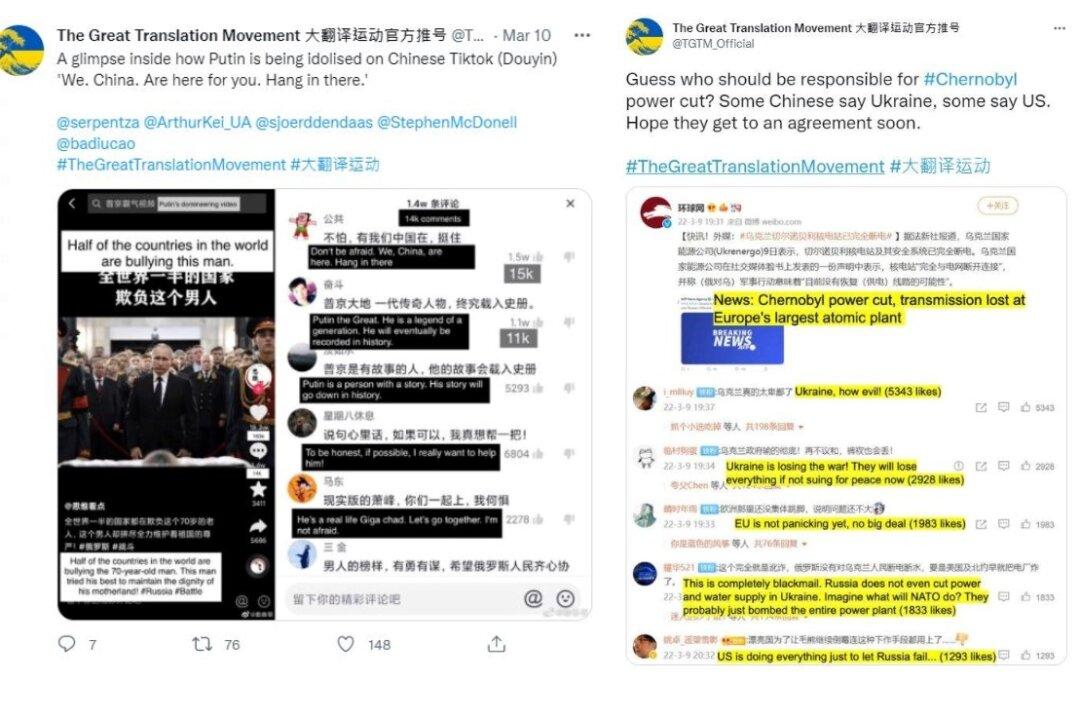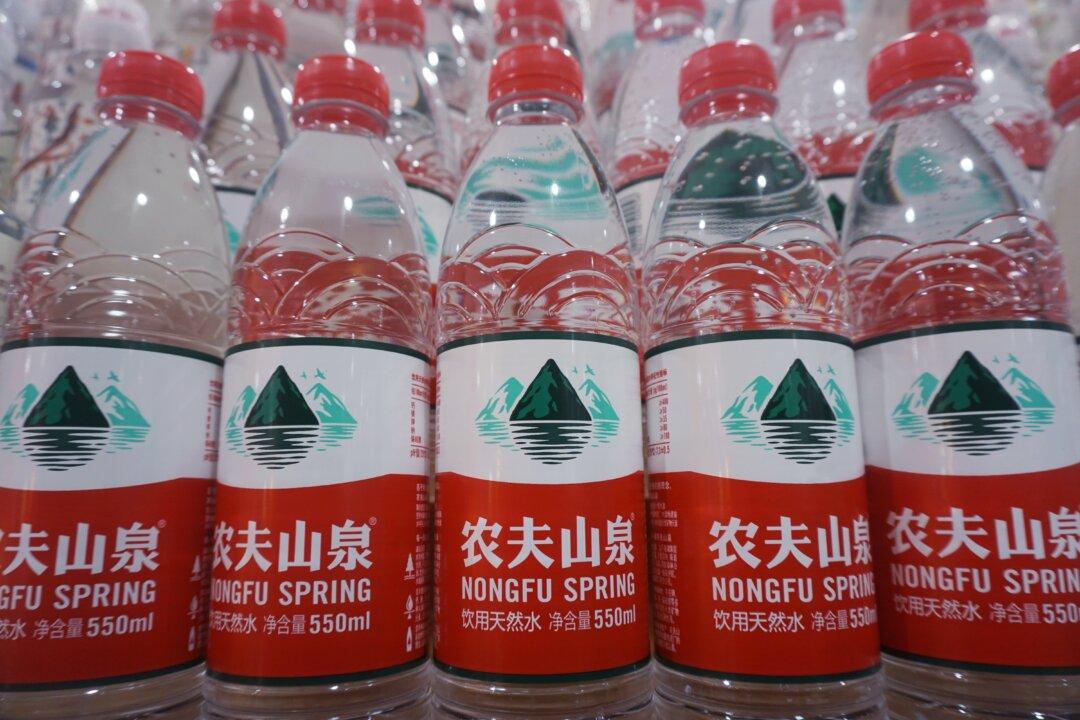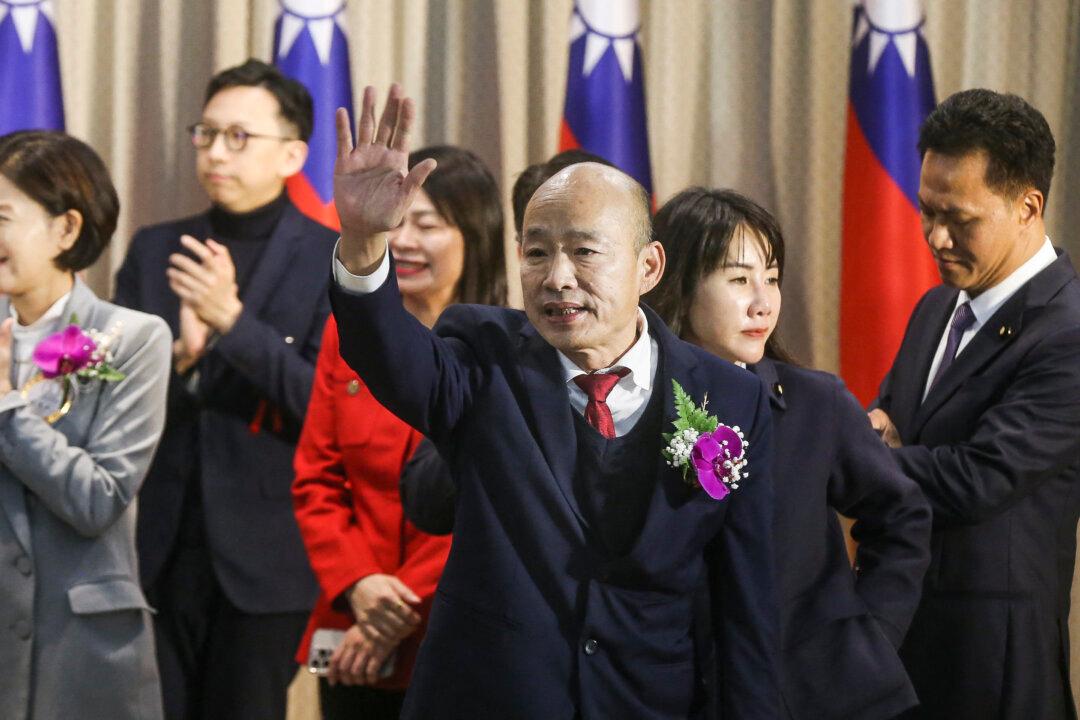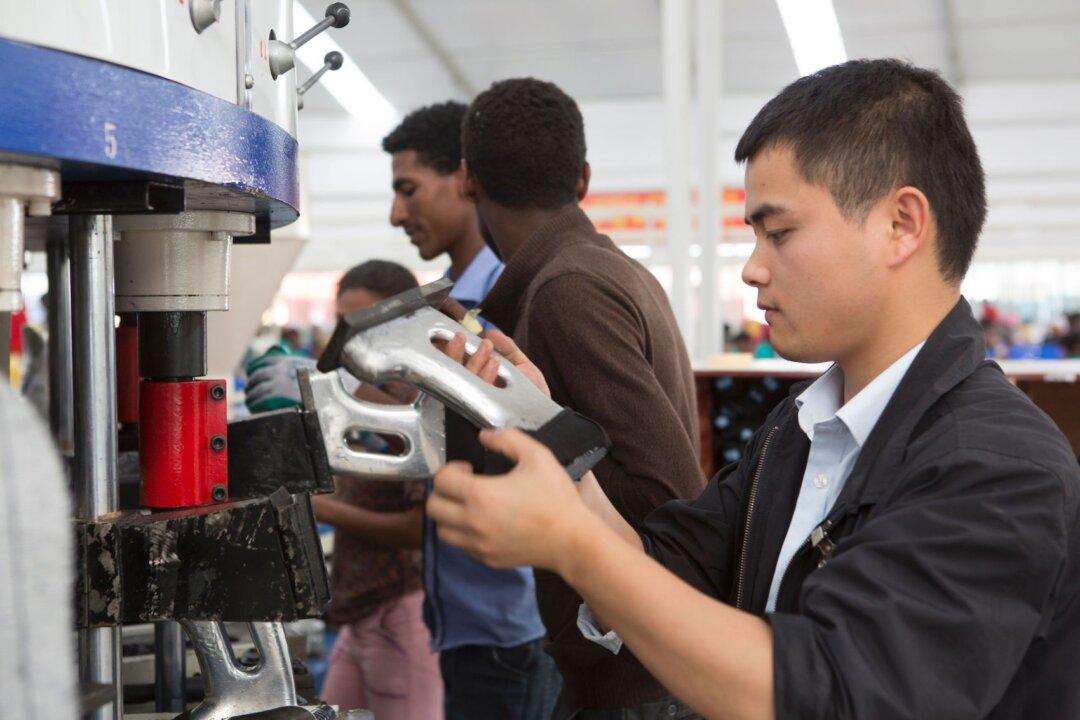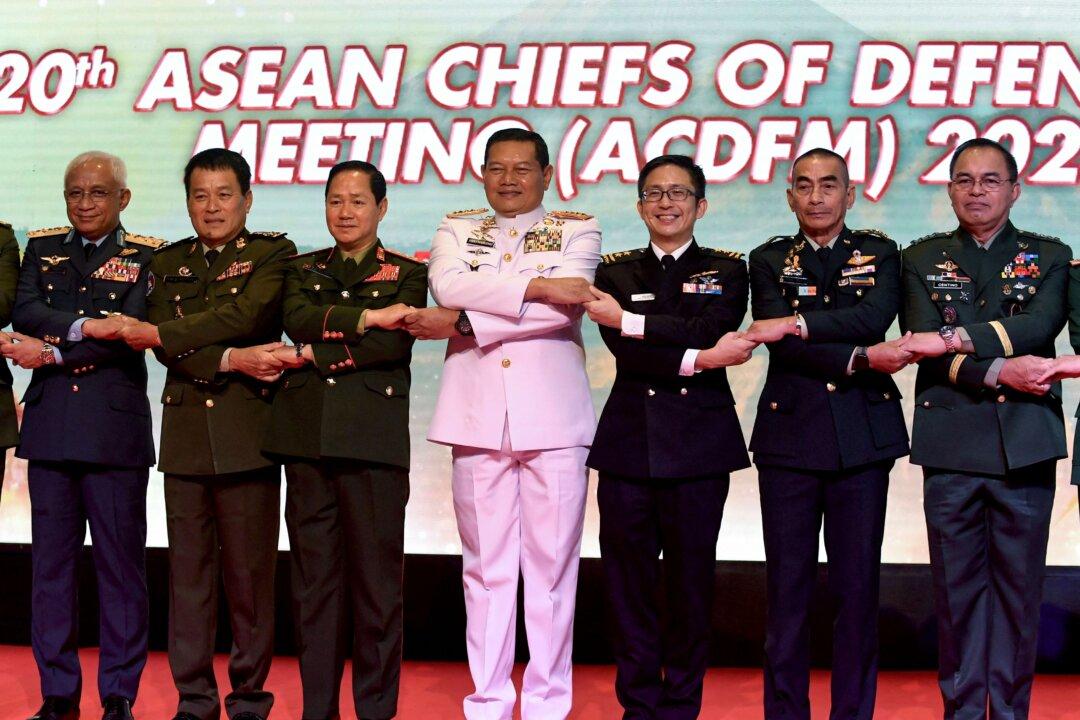The Chinese Communist Party’s (CCP) “Great Firewall” has long controlled public access to uncensored information on the internet and thus opinion within China, imbuing its citizens with values that differ from the universally accepted ones. However, a new grassroots movement is pushing to unveil the CCP’s domestic propaganda to the Western world.
The “Great Translation Movement” started in China after Russia invaded Ukraine, translating what the CCP tells its citizens into foreign languages and making it available on various online forums abroad.
